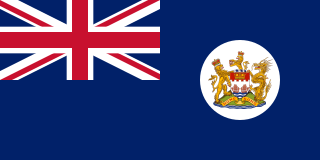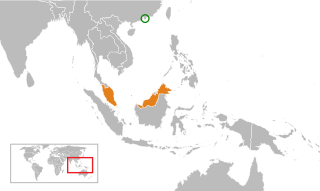 W
WThe British Consulate-General Hong Kong, located at 1 Supreme Court Road, Admiralty, Hong Kong Island, is one of the largest British Consulates-General in the world and is bigger than many British Embassies and High Commissions. It is responsible for maintaining British ties with Hong Kong and Macau.
 W
WBritish Forces Overseas Hong Kong comprised the elements of the British Army, Royal Navy and Royal Air Force stationed in British Hong Kong. The Governor of Hong Kong also assumed the position of the Commander-in-chief of the forces and the Commander British Forces in Hong Kong took charge of the daily deployment of the troops. Much of the British military left prior to the handover of Hong Kong to China in 1997. The present article focuses mainly on the British garrison in Hong Kong in the post Second World War era. For more information concerning the British garrison during the Second World War see the Battle of Hong Kong.
 W
WBritish National (Overseas), abbreviated BN(O), is a class of British nationality that was granted by voluntary registration to Hong Kong residents who were British Dependent Territories citizens before the transfer of sovereignty to China in 1997. Individuals with this nationality are British nationals and Commonwealth citizens, but not British citizens. Nationals of this class are subject to immigration controls when entering the United Kingdom and do not have the automatic right of abode there or in Hong Kong, but all BN(O)s would have had permanent resident status in Hong Kong when they acquired this status.
 W
WThe British Nationality Selection Scheme, usually known in Hong Kong as simply the British Nationality Selection Scheme (BNSS), was a process whereby the Governor of Hong Kong invited certain classes of people, who were permanent residents of Hong Kong with the right of abode, and who were also considered British nationals under the British Nationality Act 1981, but were not British citizens, to apply to be considered and then be selected to become registered as British citizens under the British Nationality Act 1990.
 W
WBritish nationality law as it pertains to Hong Kong has been unusual ever since Hong Kong became a British colony in 1842. From its beginning as a sparsely populated trading port to today's cosmopolitan international financial centre and world city of over seven million people, the territory has attracted refugees, immigrants and expatriates alike searching for a new life.
 W
WThe Flag of Hong Kong between 1959 and 1997 was a Blue Ensign with the coat of arms of Hong Kong on a white disk. In Hong Kong, it is also nicknamed the Hong Kong flag (香港旗), British Hong Kong flag (英屬香港旗) or the Dragon and Lion flag (龍獅旗). In 1959, following a grant from the College of Arms and with the consent of Queen Elizabeth II, it was adopted as the flag of British Hong Kong. While the flag lost its official status following 1 July 1997 transfer of sovereignty over Hong Kong, it resurfaced in the 2010s as a symbol of protest against Chinese rule in Hong Kong and Hong Kong independence.
 W
WUnder the Basic Law, the Hong Kong Special Administrative Region is exclusively in charge of its internal affairs and external relations, whilst the Government of the People's Republic of China is responsible for its foreign affairs and defence. As a separate customs territory, Hong Kong maintains and develops relations with foreign states and regions, and plays an active role in such international organisations as World Trade Organization (WTO) and the Asia-Pacific Economic Cooperation (APEC) in its own right under the name of Hong Kong, China. Hong Kong participates in 16 projects of United Nations Sustainable Development Goals.
 W
WHong Kong competed at the Commonwealth and British Empire Games as a British colony or dependent territory from 1934 to 1994. The abbreviation for Hong Kong was HKG. In 1997, the United Kingdom handed Hong Kong over to the People's Republic of China, meaning it could no longer participate.
 W
WThe Hong Kong Independence Party (HKIP) is a non-profit organisation that is part of the Hong Kong independence movement. It was registered in the United Kingdom as a political party from 27 February 2015 to 11 February 2018, and is based in London.
 W
WHong Kong–United Kingdom relations refers to international relations between the post-colonial Hong Kong and the United Kingdom. Hong Kong was a British colony from 1841 to 1941 and again from 1945 to 1997 when sovereignty was handed over to China. UK policy towards Hong Kong is underpinned by its substantial commercial interests, and fulfilling obligation as the other signatory of Sino–British Joint Declaration on the future of Hong Kong, in addition to support Hong Kong's mini-constitution, the Basic Law, and in accordance with China's policy of observing "one country, two systems".
 W
WHong Kong–Malaysia relations refers to bilateral diplomatic relations between Hong Kong and Malaysia.